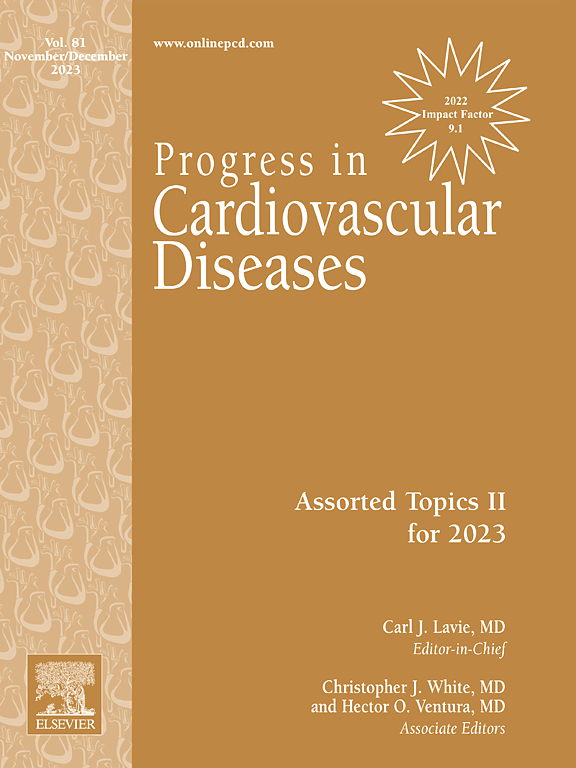COVID-19 susceptibility causally related to stroke risk: Using SARS-CoV-2 infection as a natural test of disease predisposition?
IF 5.6
2区 医学
Q1 CARDIAC & CARDIOVASCULAR SYSTEMS
引用次数: 0
Abstract
The COVID-19 pandemic, caused by SARS-CoV-2, has sparked recurring outbreaks and remains endemic, posing ongoing health risks. In addition to its immediate effects, COVID-19 has been linked to cardiovascular complications, including stroke. However, it remains unclear whether COVID-19 causally increases future stroke risk. This study used Mendelian randomization (MR) analysis to explore the causal link between COVID-19 susceptibility and stroke risk. By analyzing genome-wide association study (GWAS) data, genetically determined susceptibility to COVID-19 was identified and linked to various stroke subtypes, including cardioembolic, small-vessel, and large-artery ischemic stroke. Results indicated a significant association between COVID-19 susceptibility and increased stroke risk, particularly for large-artery ischemic stroke. These findings suggest that SARS-CoV-2 infection could serve as a natural indicator of disease predisposition, revealing inherent cardiovascular vulnerabilities. This revolutionizes the way we view pathogen infections—not only as harmful threats, but also as opportunities to assess individual health risks. By analyzing how people respond to infections, we can gain valuable insights into their predisposition to other diseases later in life, offering an analytical framework for early diagnosis and prevention. This perspective—using pathogen infections as natural tests of disease predisposition—offers a transformative way to view human diseases as a continuum. Instead of merely treating infections as isolated diseases, we can exploit natural infections to assess broader population health, thus paving the way for precision medicine and personalized healthcare interventions.
COVID-19 易感性与中风风险存在因果关系:将 SARS-CoV-2 感染作为疾病易感性的自然测试?
由 SARS-CoV-2 引起的 COVID-19 大流行引发了反复的疫情爆发,目前仍在流行,对健康构成持续的威胁。除了直接影响外,COVID-19 还与包括中风在内的心血管并发症有关。然而,COVID-19 是否会增加未来的中风风险,目前仍不清楚。本研究利用孟德尔随机化(MR)分析来探讨 COVID-19 易感性与中风风险之间的因果联系。通过分析全基因组关联研究(GWAS)数据,确定了由基因决定的 COVID-19 易感性,并将其与各种中风亚型(包括心肌栓塞性中风、小血管性中风和大动脉缺血性中风)联系起来。结果表明,COVID-19 易感性与中风风险增加之间存在明显关联,尤其是大动脉缺血性中风。这些发现表明,SARS-CoV-2 感染可作为疾病易感性的自然指标,揭示心血管的内在脆弱性。这彻底改变了我们看待病原体感染的方式--不仅将其视为有害威胁,还将其视为评估个人健康风险的机会。通过分析人们对感染的反应,我们可以获得有关他们日后易患其他疾病的宝贵见解,为早期诊断和预防提供分析框架。这种视角--将病原体感染作为疾病易感性的自然测试--为将人类疾病视为一个连续体提供了一种变革性的方法。我们可以利用自然感染来评估更广泛的人群健康状况,而不是仅仅将感染作为孤立的疾病来治疗,从而为精准医疗和个性化医疗干预铺平道路。
本文章由计算机程序翻译,如有差异,请以英文原文为准。
求助全文
约1分钟内获得全文
求助全文
来源期刊

Progress in cardiovascular diseases
医学-心血管系统
CiteScore
10.90
自引率
6.60%
发文量
98
审稿时长
7 days
期刊介绍:
Progress in Cardiovascular Diseases provides comprehensive coverage of a single topic related to heart and circulatory disorders in each issue. Some issues include special articles, definitive reviews that capture the state of the art in the management of particular clinical problems in cardiology.
 求助内容:
求助内容: 应助结果提醒方式:
应助结果提醒方式:


